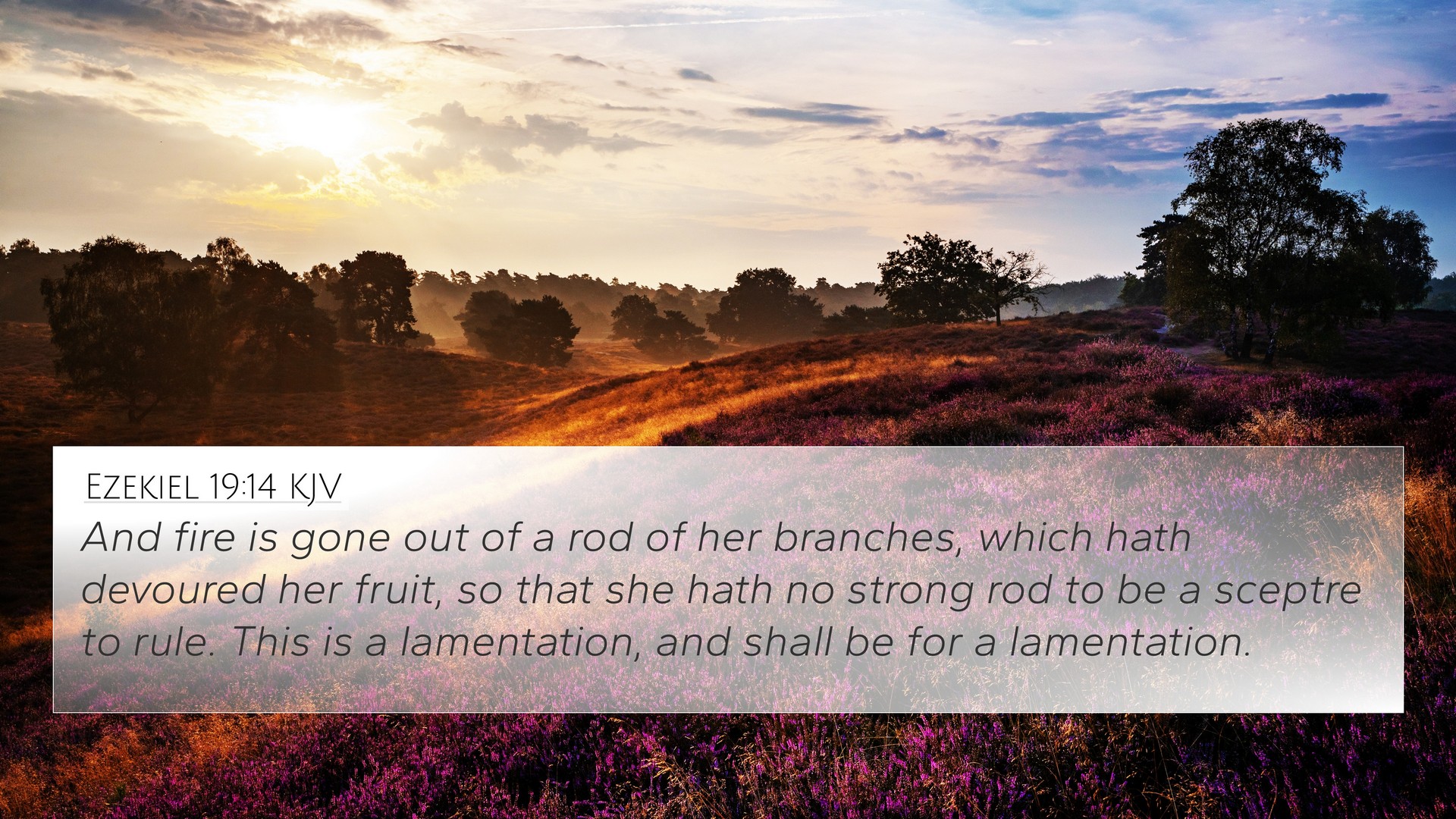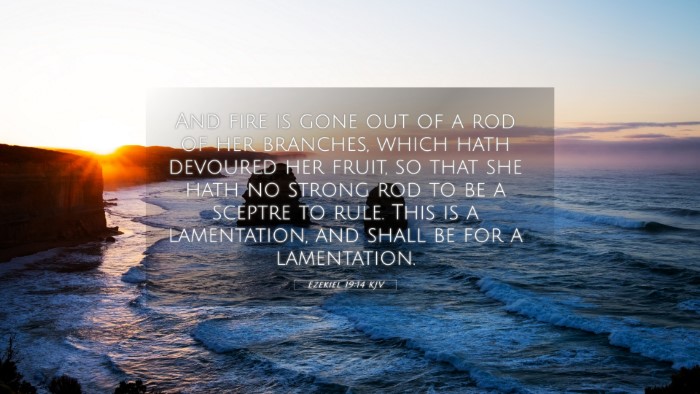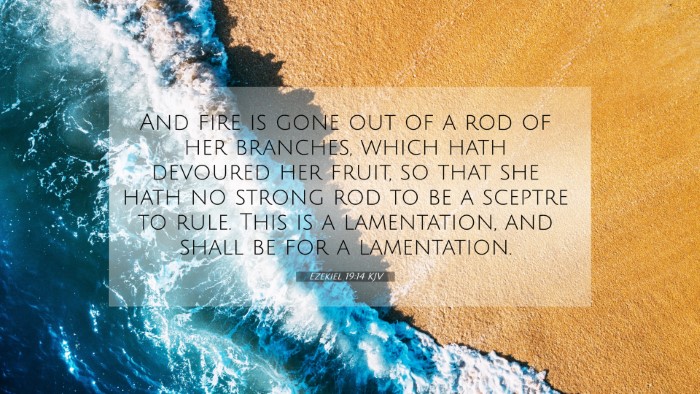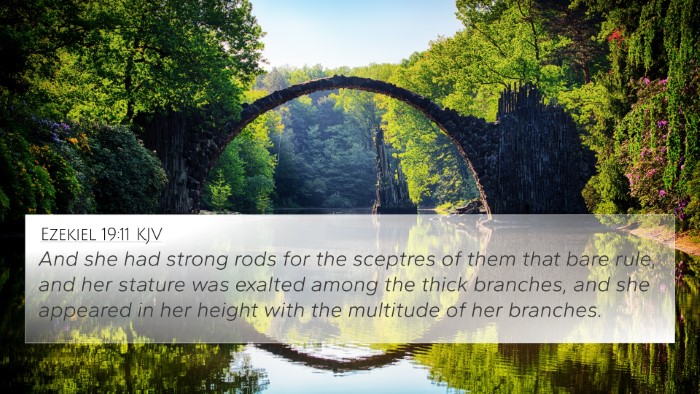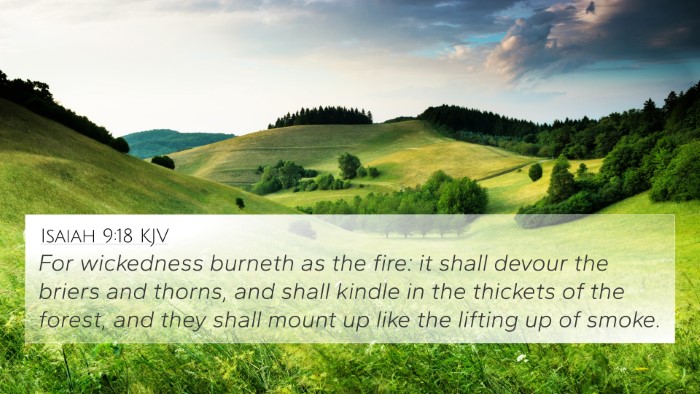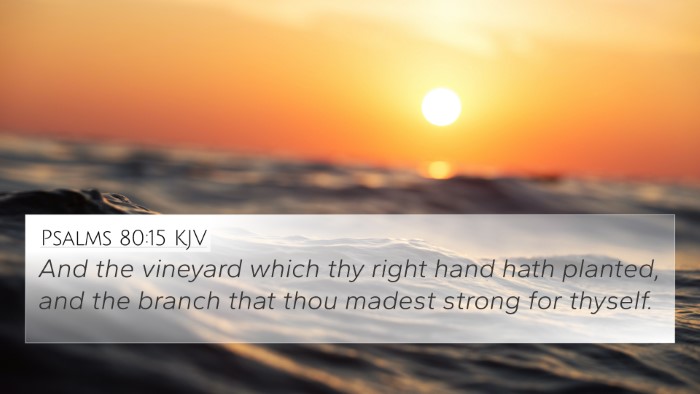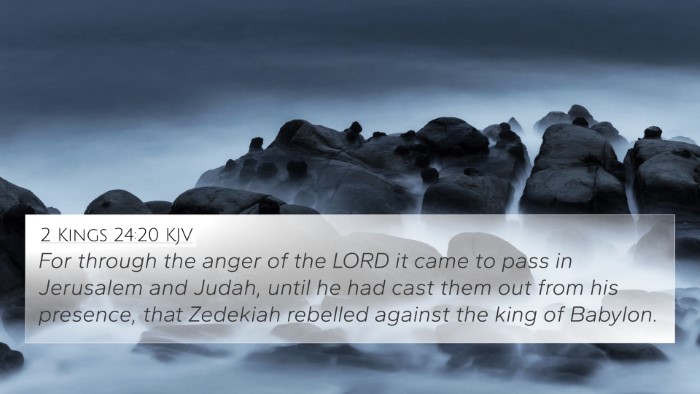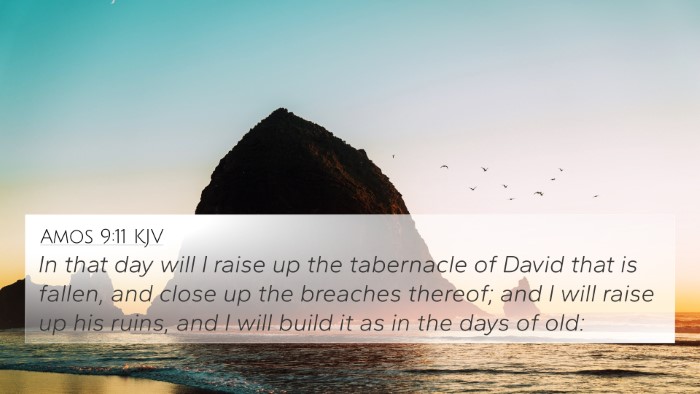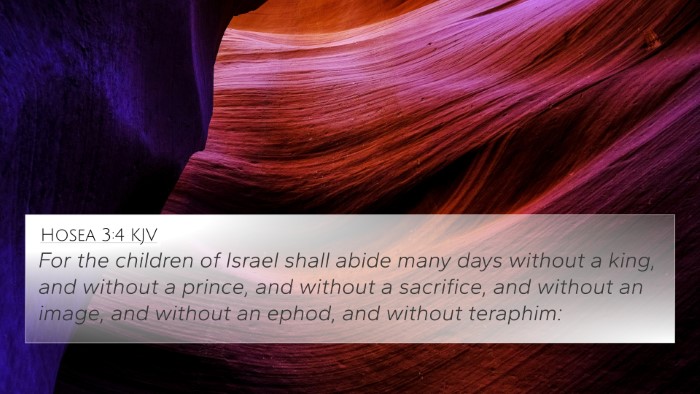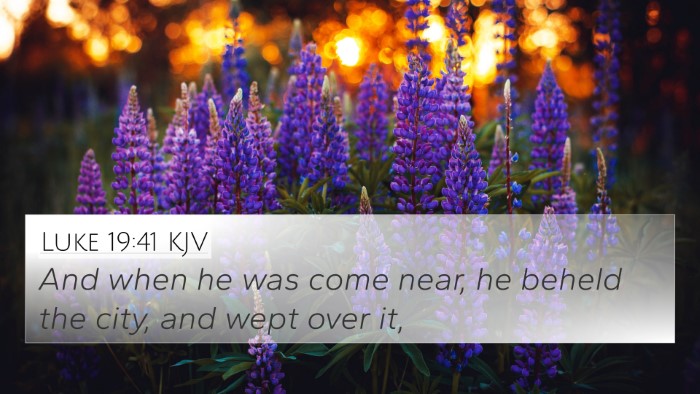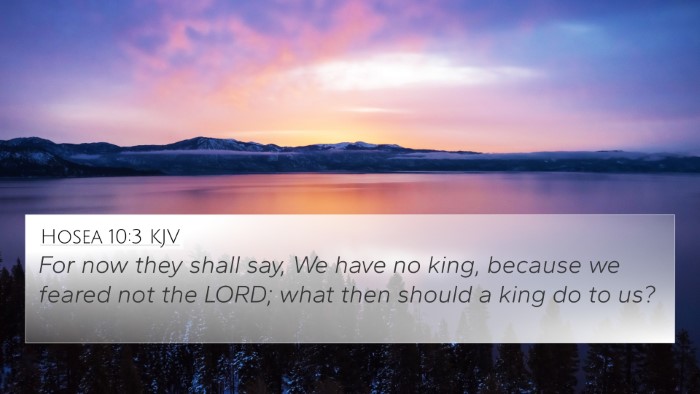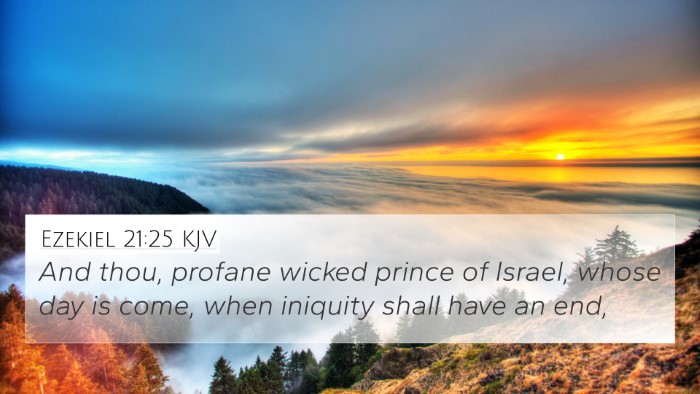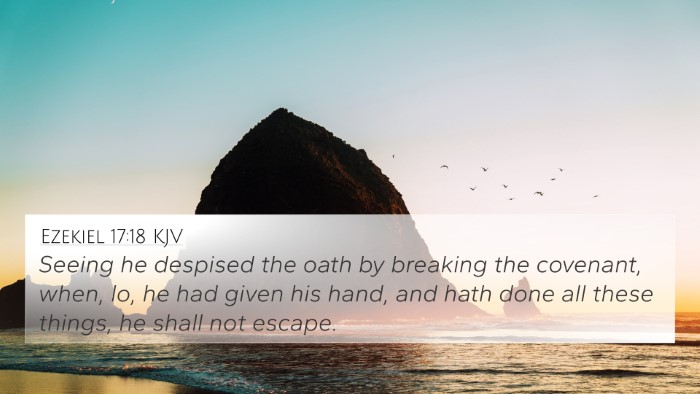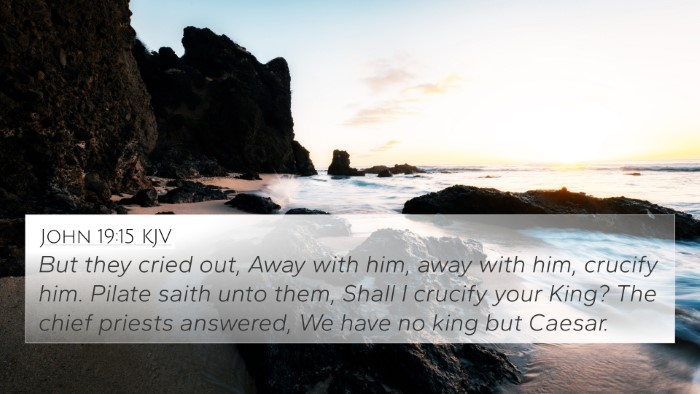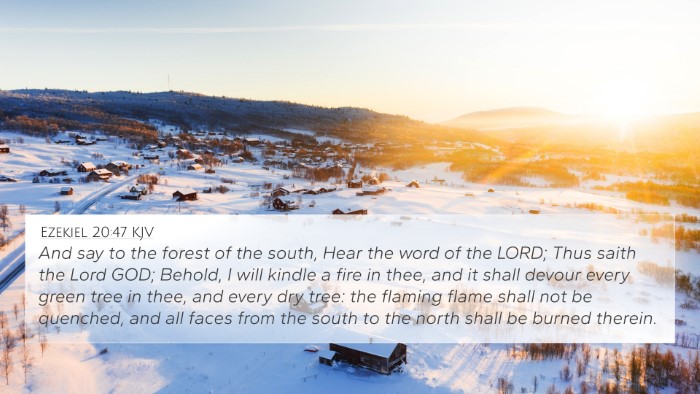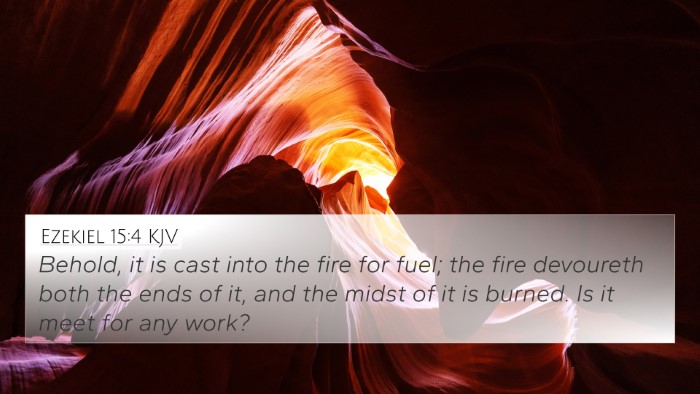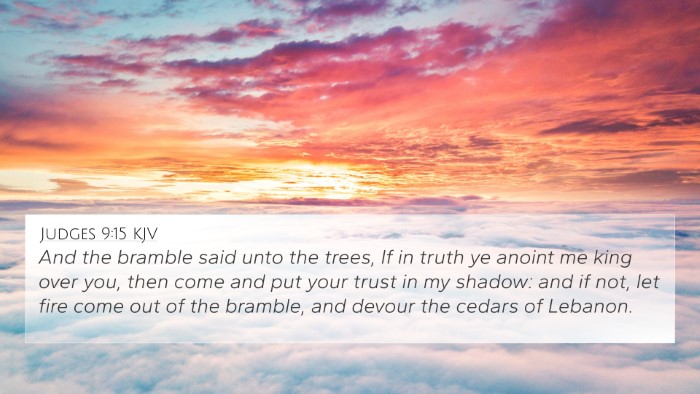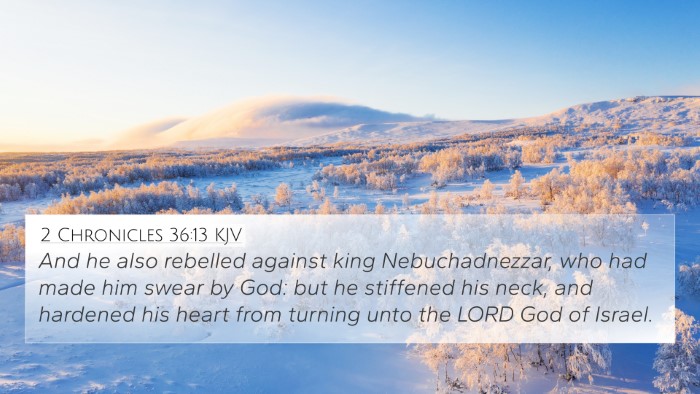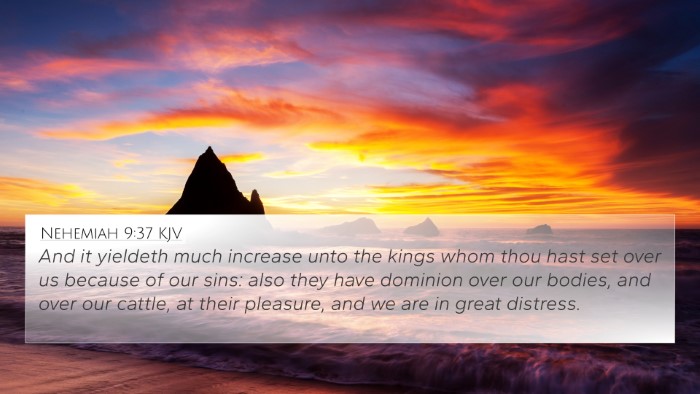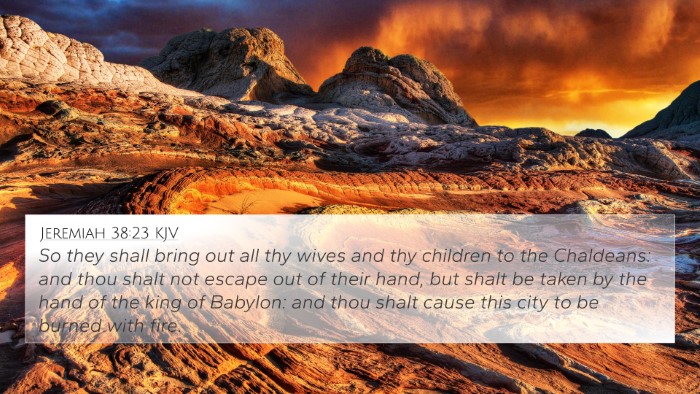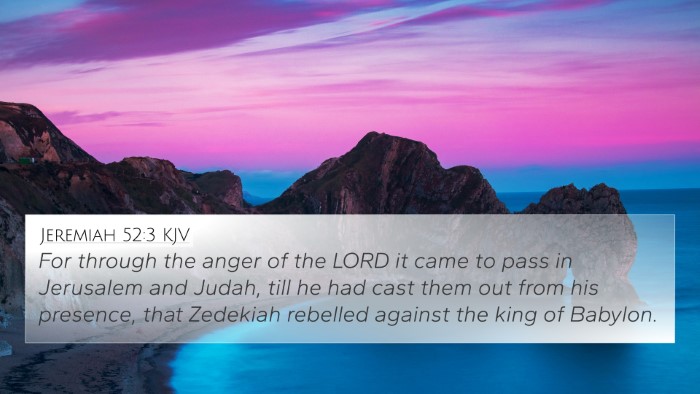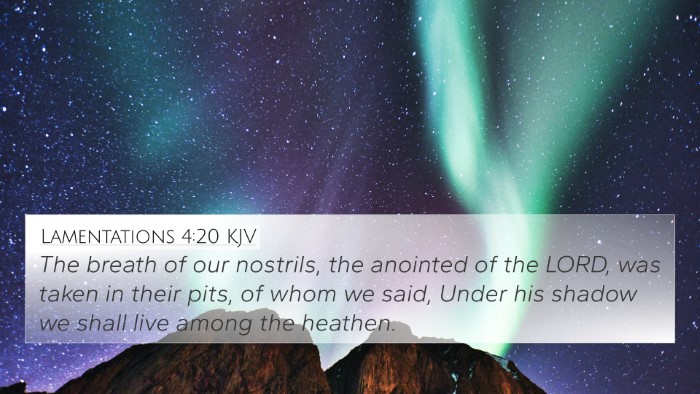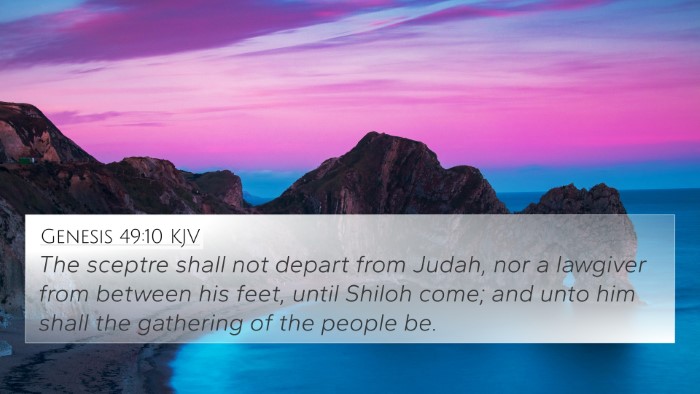Ezekiel 19:14 - Summary and Analysis
Ezekiel 19:14 states:
"And fire has gone out from a rod of her branches, which has devoured her fruits, so that she has no strong rod to be a scepter to rule."
This verse encapsulates the lamentation for the fate of the people of Israel, employing vivid imagery to convey both judgment and loss.
Understanding the Context
The Book of Ezekiel was written during a tumultuous time for Israel, particularly when the nation faced judgment from God due to its disobedience.
Ezekiel uses various metaphors throughout his prophecies to illustrate the spiritual condition of Israel and its leaders. The metaphor of a vine or branches symbolizes the people of Israel, while the absence of a strong rod indicates a lack of leadership and stability.
Commentary Insights
Matthew Henry's Commentary
Matthew Henry highlights the imagery of fire as a representation of God's judgment, which consumes the unfaithful and leads to devastation.
He notes the metaphorical significance of the 'strong rod'—without it, the people are left vulnerable and directionless, exposing the dire consequences of turning away from God’s ways.
Albert Barnes' Notes
Albert Barnes draws attention to the 'fire' that represents destruction brought about by hostile nations. He interprets the 'scepter to rule' as the loss of kingly authority and governance in Israel, underscoring the necessity of righteous leadership for the well-being of the nation.
Adam Clarke's Commentary
Adam Clarke emphasizes the theological implications of the verse, noting that the 'fire' points to the divine wrath manifested in the downfall of Israel's leaders.
Clarke provides a historical perspective, suggesting that the destruction foretold here links to the loss of political and spiritual stature that Israel experienced as a consequence of its waywardness.
Thematic Connections and Cross-References
- Jeremiah 2:21 - Israel as a vine planted by God but becoming wild.
- Isaiah 5:1-7 - The parable of the vineyard and God's expectations.
- Psalm 80:8-16 - Israel compared to a vine taken from Egypt, now destroyed.
- Lamentations 2:3 - God's anger against the daughter of Zion and their downfall.
- Ezekiel 17:24 - The restoration of the tree as a symbol of Israel's future hope.
- Matthew 21:19 - Jesus curses the barren fig tree, emphasizing unfruitfulness.
- Revelation 21:8 - Fire as a symbol of judgment against the wicked.
Inter-Biblical Dialogue
The verse provides significant material for examining the connection between the prophetic warnings in the Old Testament and their fulfillment seen in the New Testament.
Many passages align with the sentiments expressed in Ezekiel 19:14, illustrating a coherent divine narrative about judgment, leadership, and restoration.
Application for Modern Readers
For contemporary Christians, Ezekiel 19:14 serves as a somber reminder of the importance of faithfulness and the consequences of spiritual negligence.
The imagery of fire can provoke reflection on areas of life that may be consumed due to lack of attention or obedience to God’s commandments.
Tools for Bible Cross-Referencing
To gain deeper insights and understanding, readers can utilize various resources such as:
- Bible concordance
- Bible cross-reference guide
- Cross-reference Bible study materials
- Comprehensive Bible cross-reference tools
- Study methods for cross-referencing biblical themes
Conclusion
Ezekiel 19:14 contains a poignant message about leadership, judgment, and the dire state of the nation of Israel. By examining this text alongside its cross-references, readers can appreciate the continuity of biblical themes that point towards God's nature and expectations for His people.
